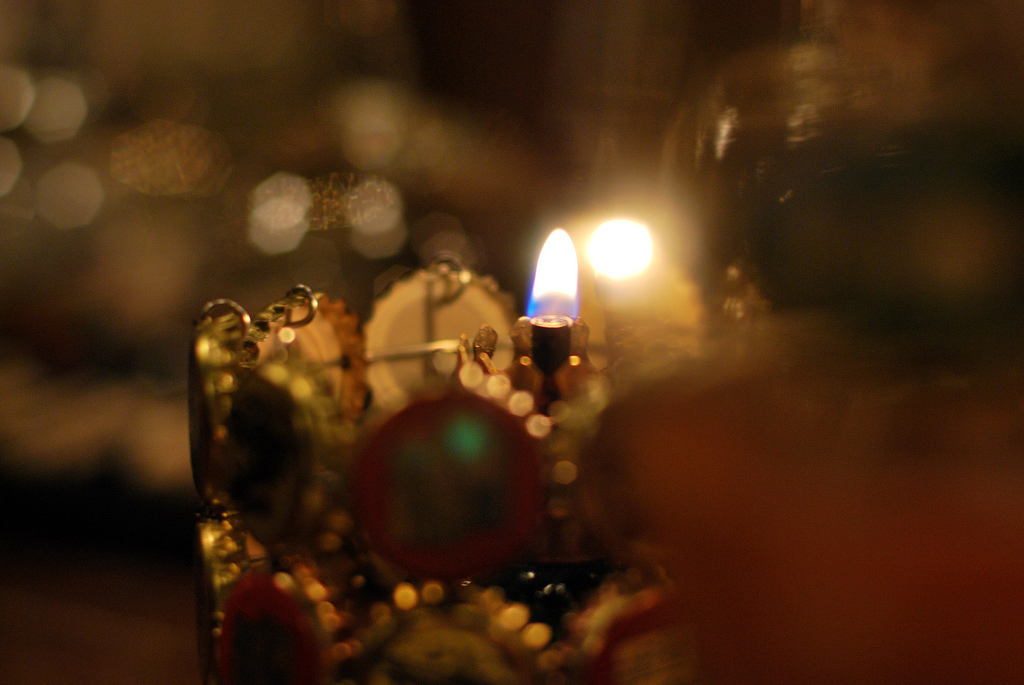“Hurry up and wait.” Whenever I talk to my mother these days, this somewhat new life circumstance is something she frequently mentions. There have been many adjustments with her move to a care center, a move necessitated by her progressed Parkinsonism. However, the amendment to her situation she notes most often is how her daily routine is now marked by the certainty of waiting, which is most often prefaced by a charge to hurry up and get ready. Once ready, once she presses the button that calls for assistance, she waits.
She waits for her care partner to get her dressed. She waits for her meds. She waits to be bathed. She waits to be taken down to dinner. She waits to be picked up for a doctor’s appointment. She waits to heal from a fall. And now, she waits for the hallucinations to pass, for reality to replace the delusions caused by the very medications meant to keep her symptoms at bay.
I could believe that my mother’s existence is no different than mine. Waiting is an integral part of life, after all. There is much for which we wait — and on different levels of both urgency and expectancy. But whereas I can fill the time of anticipation with tasks and activities, with places to go and people to see, with the intention of checking off one more item on my endless “to do” list, for my mother, the space between “hurry up/be ready” and the fruition of an event in a-day-in-the-life is not so easily occupied.
When you are not allowed to get out of your wheelchair without help, when your brain does not comply with your wills and wants, when your hands are no longer capable of writing and have lost the strength to do much of anything else, and when your mind plays tricks on you, convincing you that there are people sitting in your room, staring at you, that people want to poison you and hurt you; waiting becomes more than waiting. It becomes the space where the wait seems unbearable, where the expectation begs for the escape of sleep, where God seems absent.
The kind of waiting Matthew has in mind is similar, I think. It is the kind of waiting during which it is hard to determine how to wait. Really, how does one wait for those events that mark the day’s passing? Those events that fill the day with reason and purpose? Those events that you need, desperately, to remind you that you are still alive and still matter? How does one wait for that event that beholds the very coming of Christ?
And on another level, how do you fill these times of waiting for inevitable instances of racial oppression? Of another news report of gun violence? Of further #metoo incidents? Of yet one more demonstration that deems LGBTQIA persons less than? Of probable bigotry, of predictable xenophobia, of projected sexism? They are also similar to the waiting for the coming of Christ. Because the coming of Christ means, in the end, knowing that a moment will arrive when how we respond depends on our readiness to give witness to Immanuel in our midst.
Because these moments of response? They determine our readiness to acknowledge if the coming of Christ is either taken for granted or believed not to be true. Are our lamps burning, ready to call out the injustice we see? Are our lamps trimmed so as to give witness to the righteousness of God present here and now? Are our lamps filled with oil so as to be ready for the long haul of resistance and persistence?
Because when Christ comes and calls out our continued complacency toward that which undermines the bringing about of the Kingdom of Heaven, we better be ready to respond. We better be ready to answer for our compliance to empire at the expense of those whom God deemed as blessed. We better be ready to answer for our collusion with ecclesiologies that perpetuate patriarchy and privilege. We better be ready to answer for our collaboration with structures and systems that have no interest in and no intention of changing, even though that is what God seems to be demanding.
It is hard to talk with my mother these days — my mother who lived most of her life as a “faithful” pastor’s wife; who then answered God’s call to ministry which then meant a relocated life; who served in God’s church for ten years before her disease determined her retirement. But what I am learning in the silence of our visits, in the challenges that now are a part of our conversations, is that “hurry up and wait” might very well be the kind of readiness we need right now. Yes, it means waiting — always. But I think it’s a kind of readiness that, in the end, means we are ready.
Karoline

